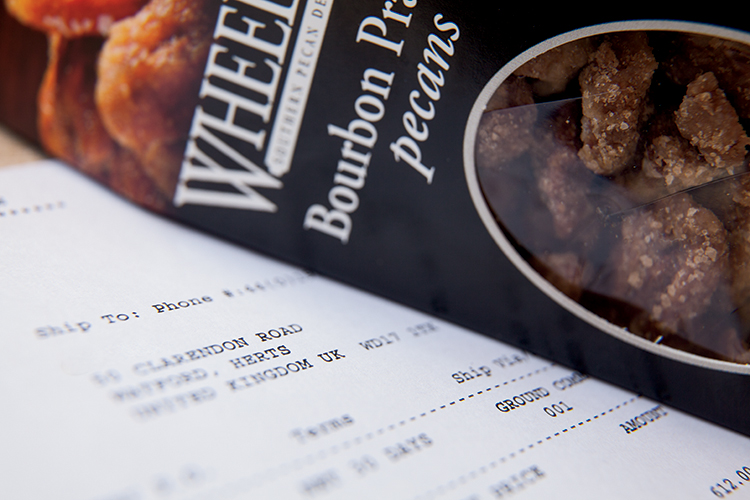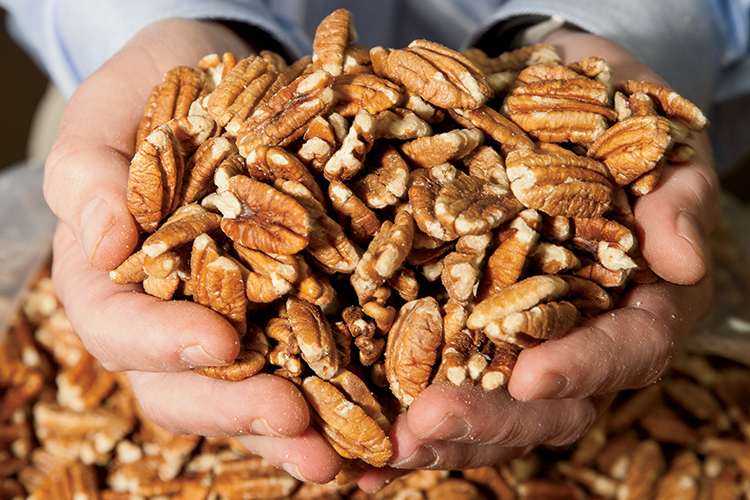Home > Mississippi > Mississippi Crops & Livestock > Agricultural Exports Grow Mississippi’s Economy
Agricultural Exports Grow Mississippi’s Economy
In partnership with: Mississippi Department of Agriculture and Commerce

Resource Center
The trade center helps Mississippi growers and companies find the resources and information needed to successfully enter the global market by hosting educational seminars, webinars and conferences. Travis says many of the organization’s clients are first-time exporters who need help with such tasks as background research or preparation of an international business plan. “We work in partnership with the state trade specialists as well as the federal trade specialists, Mississippi State University, the Mississippi Department of Agriculture and Commerce and organizations like the Southern United States Trade Association (SUSTA), which focuses on agriculture-based trade,” she says. “We also point our clients to private resources, such as logistical services and financial assistance. We try really hard to be an information booth, if you will. It’s our job to know where all the resources are that help make exports successful.” Travis says global population growth and a simultaneous population move from rural areas to more urban centers has increased demand for food and agriculture products. “This is an especially good opportunity for those small and medium-sized Mississippi producers. They have products that other countries want, but they don’t necessarily know how to export. That’s where all these resources come in,” she says. 
Trade In a Nutshell
Pecans are synonymous with Mississippi agriculture, and family-owned Indianola Pecan House is one of the biggest names in the industry. The company sells shelled and in-shell pecans, pecan candies, pecan pastries, and specialty pecan products. Indianola Pecan House began exporting its processed pecans around 2007. Today, exports – primarily to Canada, Australia and the United Kingdom – account for nearly 10 percent of the company’s business. Owner Tim Timbs says exports provide an additional revenue stream for the company, and each new venture into a different market opens up opportunity to expand the customer base. He says his company’s success is due in part to the resources available to businesses like his. “The Mississippi Development Authority worked with us a lot and provided a lot of resources – from trade shows to providing contacts. When you start exporting to another country, sometimes you need help clarifying credibility. They also help with language barriers,” he says. ![Mississippi ag [INFOGRAPHIC]](https://eadn-wc01-4177395.nxedge.io/wp-content/uploads/2014/12/Screen-Shot-2014-12-09-at-3.31.25-PM.png)
Logging Strong Numbers
Since Charleston, Miss.-based Tallahatchie Lumber started exporting its hardwood mats to Canada in 2011, the company has grown from five employees to 35. “Purchasing this mill in 2011, I was able to keep my office manager, Tricia Harrington, and mill manager, Tommy Harrington, who have 30-plus years in the sawmill lumber industry, and they have been a huge part in making and getting this mill back up and running,” says owner Charles Weatherly. Tallahatchie Lumber exports 25 percent of its product to Canada, specifically Edmonton, Alberta, where the mats are used to reinforce roads leading to the oil sands. “In Canada, they don’t have hardwood,” Weatherly says. “Southern hardwood, particularly oak and hickory, makes the mats more durable for heavy equipment. Mississippi is the epicenter of Southern hardwood.” ![Mississippi ag [INFOGRAPHIC]](https://eadn-wc01-4177395.nxedge.io/wp-content/uploads/2014/12/Screen-Shot-2014-12-09-at-3.31.10-PM.png)
Economies of Sale
Travis says in addition to more traditional agriculture commodities, such as pecans and lumber, the state exports a wide range of unconventional ag-based products, such as bird skin used in research (to the tune of $3 million), horse supplements and care products, as well as cattle embryos. “Agriculture exports are very important to the state’s economic development because agriculture is a job creator, and those jobs are not just farm labor, but also processors, manufacturers and transportation jobs,” Travis says. Clay County’s Town Creek Farm is a cattle operation that produces genetics for use on cattle ranches in both the U.S. and abroad. The farm exports about 95 percent of the embryos it collects, with the largest markets being Paraguay and Brazil. “Worldwide demand for protein will continue to increase with population growth and improved welfare of economies,” says Joy Reznicek, president of Town Creek Farm. “One of the most cost effective ways to increase production in many of these countries is with superior genetics.”



